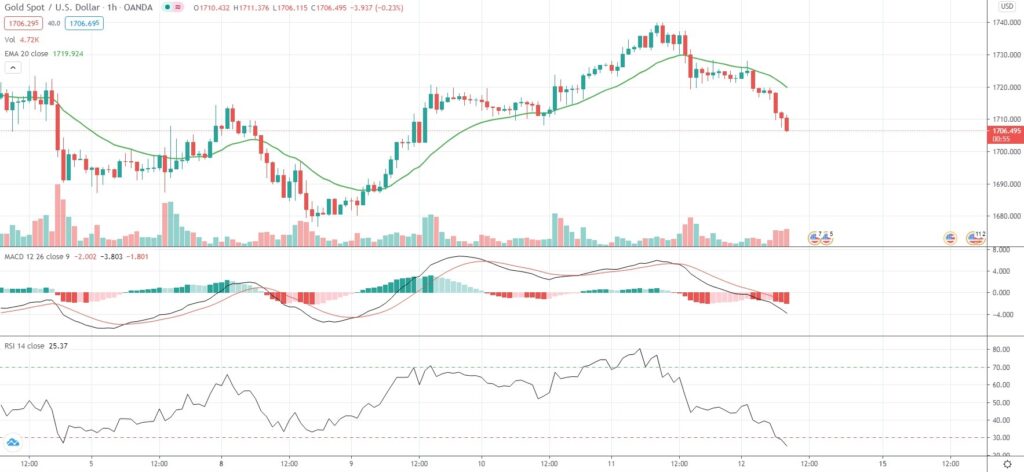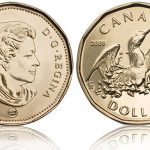Spot Gold extended losses from the previous trading day on Friday, pressured by a surge in US Treasury yields and a firmer US Dollar.
The yield on benchmark US government bonds rose after a pullback earlier this week, while the US Dollar rebounded from lows not seen since March 4th.
Rising bond yields lead to higher opportunity cost of holding non-yielding Gold.
“It’s basically a function of elevated yields and although yields aren’t marching higher, the problem is they’re not going lower, and that presents a problem,” Stephen Innes, chief
global market strategist at Axi, was quoted as saying by Reuters.
“Gold’s going to hold around $1,700 … unless we break new ground on higher yields,” Innes added.
Meanwhile, the $1.9 trillion economic stimulus bill was signed into law by US President Biden on Thursday, while he also said he was working to accelerate the vaccination campaign and bring the US closer to normality by July.
“The implementation of Biden’s pandemic relief bills is stoking fears of a massive supply of bonds hitting the market, as well as rising inflation. The continued rollout of vaccines is also supporting the labor market, thus diminishing support for safe-haven assets,” ANZ analysts wrote in an investor note.
As of 8:55 GMT on Friday Spot Gold was losing 0.87% to trade at $1,707.61 per troy ounce, after earlier touching an intraday low of $1,706.44 per troy ounce, or its weakest price level since March 9th ($1,680.25 per troy ounce). The commodity has retreated 1.60% so far in March, following another 6.14% drop in February.
Meanwhile, Gold futures for delivery in April were retreating 1.05% on the day to trade at $1,704.50 per troy ounce, while Silver futures for delivery in May were down 1.86% to trade at $25.705 per troy ounce.
The US Dollar Index, which reflects the relative strength of the greenback against a basket of six other major currencies, was edging up 0.36% to 91.75 on Friday, while rebounding from yesterday’s one-week low of 91.36.
In terms of macroeconomic data, today Gold traders will be expecting the preliminary results from Thomson Reuters/University of Michigan’s monthly survey on US consumer sentiment for March due out at 15:00 GMT as well as the February data on producer prices due out at 13:30 GMT.
Near-term investor interest rate expectations were without change. According to CME’s FedWatch Tool, as of March 12th, investors saw a 100.0% chance of the Federal Reserve keeping borrowing costs at the current 0%-0.25% level at its policy meeting on March 16th-17th, or unchanged compared to March 11th.
Daily Pivot Levels (traditional method of calculation)
Central Pivot – $1,727.28
R1 – $1,735.24
R2 – $1,747.85
R3 – $1,755.80
R4 – $1,763.76
S1 – $1,714.67
S2 – $1,706.72
S3 – $1,694.11
S4 – $1,681.50






